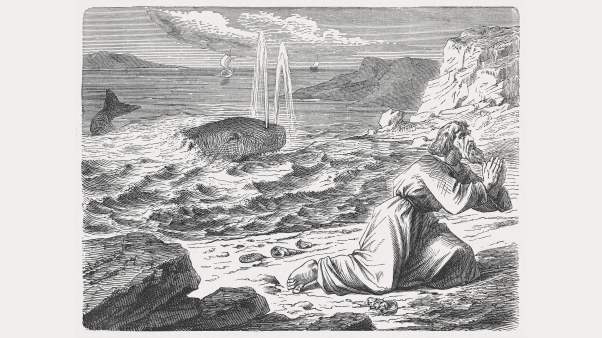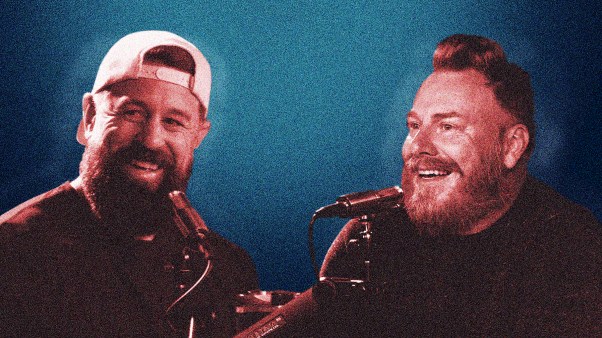More than 700 people from 40 states gathered in Washington D.C. last week to urge the U.S. government and the international community to more visibly support peace in war-ravaged northern Uganda.
Since late August, a precarious cease-fire has been in place. The United Nations has described the conflict as “one of the worst human-rights crises of the past century.”
“The once great optimism for a final end to this conflict is quickly dissipating. And with each passing day, more lives are put in danger,” said Rep. Chris Smith, (R-N.J.), chairman of the House International Relations’ Africa, Global Human Rights and International Operations subcommittee.
“The U.S. must be more visible in helping to bring this terrible and despicable war to an end,” Smith said. He has introduced a bill [HR 5966] to stop children from serving as soldiers in wars.
Twenty years of fighting between the rebel Lord’s Resistance Army (LRA) and the Ugandan government has displaced nearly 2 million people. An estimated 30,000 children have been abducted into the LRA as child soldiers and forced to commit atrocities and serve as sex slaves. Last year, the International Rescue Committee reported that 1,000 people were dying every week from war-related violence, displacement, disease, and deplorable conditions in internally displaced persons camps.
“This war continues because the world continues to ignore it,” said Rory Anderson, senior Africa policy adviser for World Vision. “Sudan was not a priority until people in the church mobilized. Northern Uganda will remain a low priority until Congress and the President hear from the public.”
The NGO-sponsored event, “Peace Within Reach,” began with an all-day symposium at George Washington University, where speakers said immediate international and U.S. support for the peace talks currently underway in Juba, southern Sudan, was critical to prevent the talks from unraveling.
“The opportunity is now. I say the opportunity is now because we have an opening, which for a long time has been elusive,” said Ugandan paramount chief Rwot Acana, chief of the Acholi people. The Acholi have suffered the worst of the LRA’s attacks in northern Uganda. Acana said failure to intervene “would be a disservice to humanity.”
Betty Bigombe, a peace negotiator whose efforts are credited with creating momentum for the current peace talks, said the U.S. and international community were under a “moral imperative to take a stand when unimaginable human atrocities are taking place, no matter where.” She urged the U.S. government to play “a more active role.”
Eunice Reddick, the State Department’s office director of East African affairs and the only government representative on the panel, stopped short of saying the U.S. would openly endorse the peace talks.
“We support the NGOs’ call for peaceful resolution of the LRA problem, which is also a part of the U.S. government’s policy,” she said. Reddick said the LRA’s move to southern Sudan as well as eastern Congo had “added another dimension to a complicated situation for potentially creating border regional instability.” She said the U.S. government’s policy objectives, first articulated in 2004, remain largely the same: to provide humanitarian assistance to northern Uganda, to supply non-lethal military support to the Ugandan military, and to encourage peaceful resolution to the conflict.
A fomer child soldier, Grace Akallo, speaking on the 10-year anniversary of her abduction by the LRA, described the horrors she and her kidnapped schoolmates experienced.
“We were given as wives to the rebel commanders,” said Akallo. “Children trying to escape were brutally murdered in front of me.” At 14, Akallo was kidnapped along with 139 of her classmates from St. Mary’s College in Aboke. A school nun negotiated the release of many of the girls, but soldiers kept Akallo and 29 others. “I am speaking on behalf of my friends and all of the children being mutilated now, as I speak,” said Akallo.
“This war continues because the world ignores our plight. But this war can stop,” said Akallo, whose speech moved the audience to a standing ovation. “The United States needs to support the ongoing Juba peace talks. … If these talks fail, the U.S. and the international community are condemning my friends and others to a life of captivity and death.”
Akallo and several participants pressed Reddick during the question-and-answer time on the U.S. government’s seeming reluctance to endorse the peace talks and questioned why the government was spending tens of millions of dollars training and supporting Ugandan soldiers rather than putting more resources toward monitoring the peace talks and enforcing the cease-fire agreement.
Reddick said the government was “doing what we can to respond to the situation on the ground,” while allowing the warring parties and neighboring countries to work through the specifics of a peace plan.
Reddick said the U.S. government is walking a fine line, trying to defuse the conflict without backing a specific plan or effort that may not be palatable to both parties, especially if perceived as a Western-driven process.
The NGOs’ campaign received a boost during Northern Uganda Lobby Day, the second day of the event, when participants converged on Capitol Hill to lobby for congressional action.
“To buttress the peace negotiations, I urge the U.S. State Department and the United Nations to pressure both parties to maintain the current ceasefire and make peace a permanent reality,” said Sen. Mary Landrieu (D-La.).
World Vision, the International Rescue Committee, and the Africa Faith and Justice Network were the events’ principal sponsors. Other sponsors included Uganda-CAN, GuluWalk, Invisible Children, and The Name Campaign.
World Vision has created a “Children of War Mobilizer’s Toolkit” that includes an advocacy guide, an 11-minute documentary, a policy report, and other tools. It is available by request at nochildsoldiers@worldvision.org. The group is also asking supporters to sign its declaration at worldvision.org/nochildsoldiers. The declaration urges the U.S. government, the United Nations and the international community “to work diligently to bring peace and protection to the children of northern Uganda.”
Anderson emphasized that while grassroots mobilization is important, so, too, is prayer. “This is a spiritual war, and we cannot forget that the power of God is very real. The power of prayer enables people to reconcile and forgive,” said Anderson. “This is what releases the power of deliverance.”
Sheryl Henderson Blunt is a senior writer for CT.
Copyright © 2006 Christianity Today. Click for reprint information.
Related Elsewhere:
Christianity Today‘s past articles on this subject include a January 2006 cover story on the Lord’s Resistance Army and a September 27 news story about the peace process. See our full coverage areas on Uganda and the LRA.








